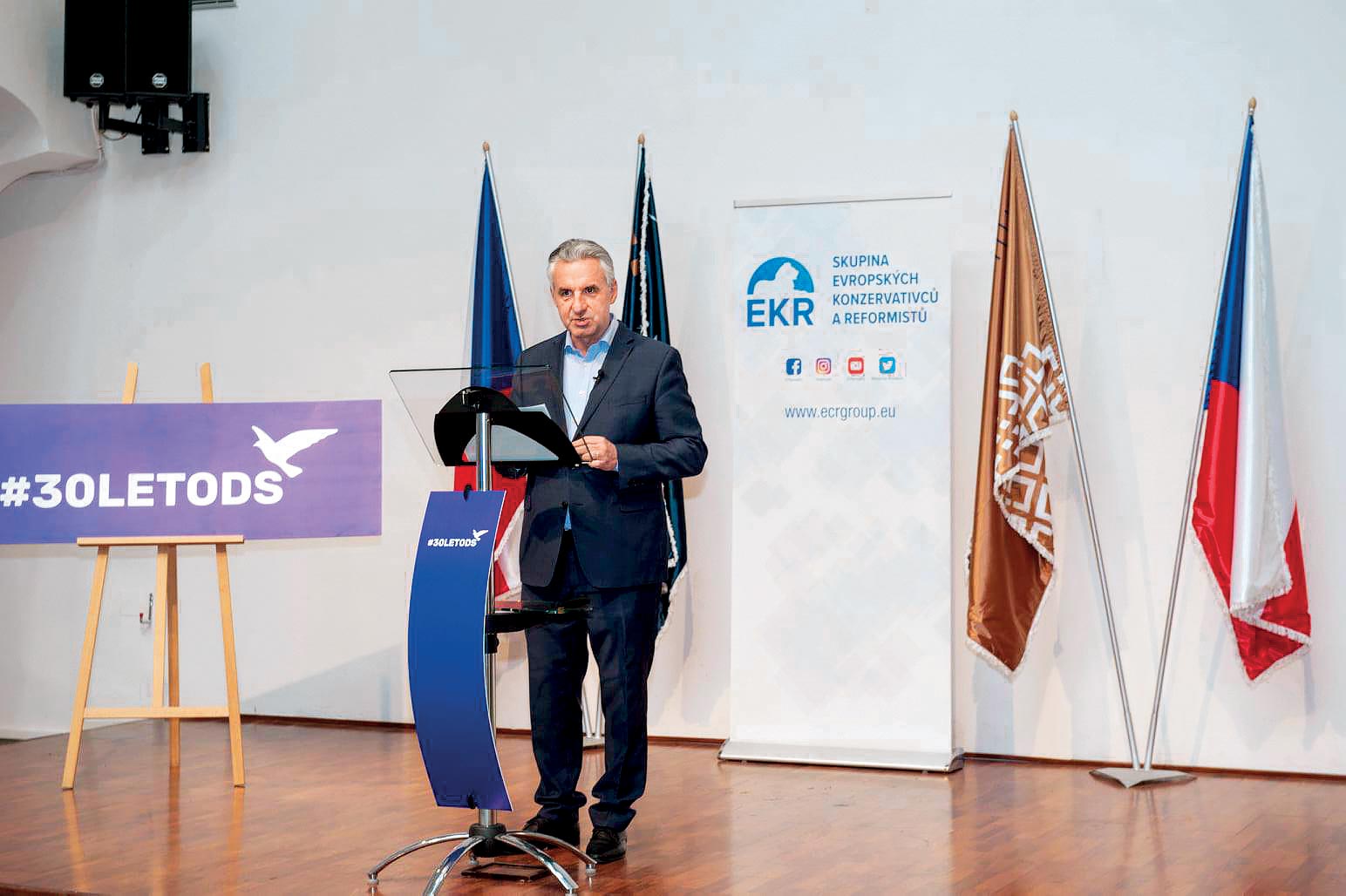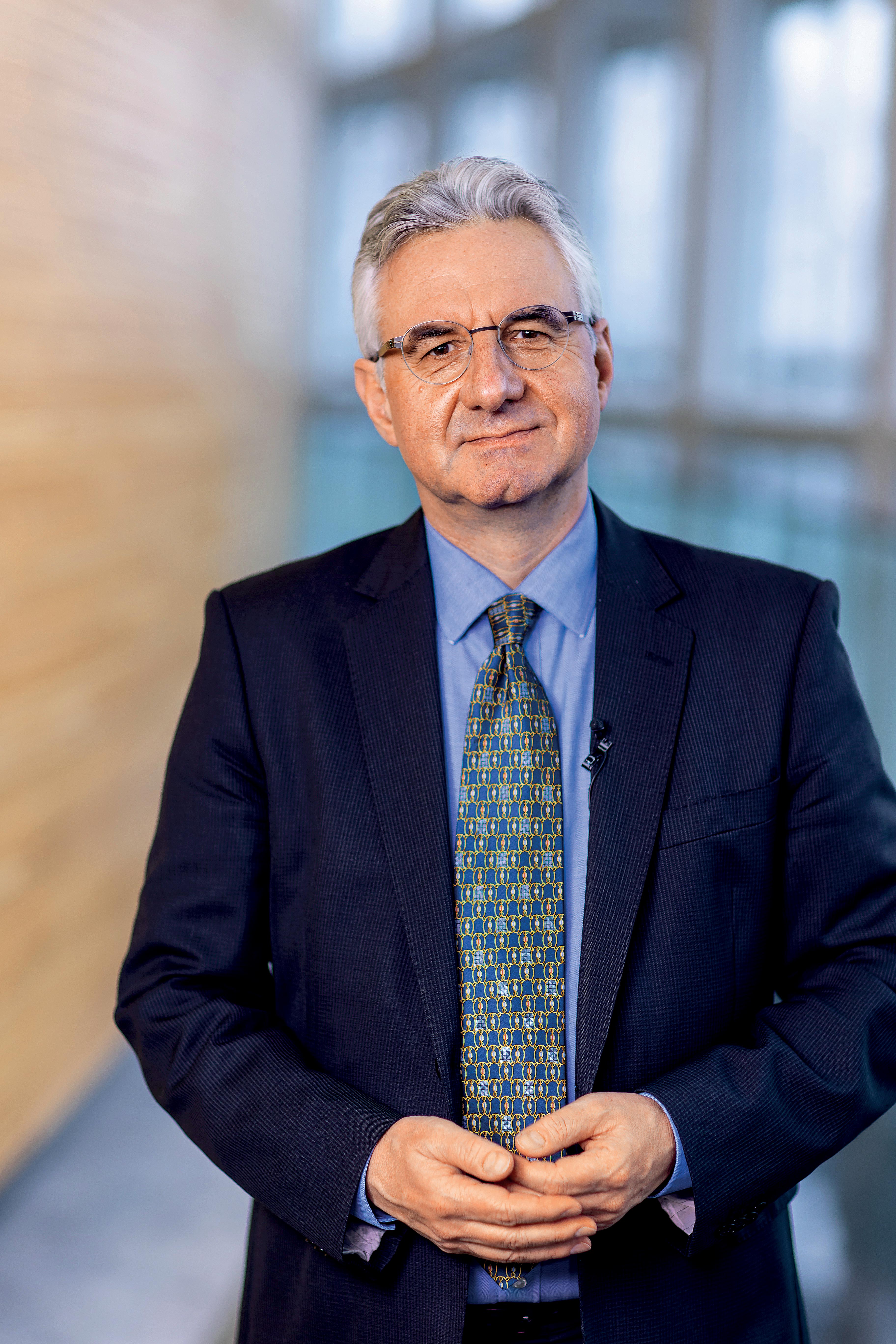Next year will mark twenty years since Jan Zahradil became a member of the European Parliament. He isn’t planning to add to that number and will not be running in next year’s European Parliament election. And if he plans to stay in politics? He’ll leave that up to the Czech parliamentary election.
The free trade agreement with Vietnam will remain a major mark of yours on the European Parliament and European politics in general. Are you satisfied with how it is being upheld? What has it brought for Europe and Vietnam so far?
It was definitely a step in the right direction. The EU understood in time that Vietnam is a very dynamic country and is shaping up to be the leader in Southeast Asia. The recent strategic partnership that Vietnam and the USA entered into confirmed this development. However, the journey of the EU-Vietnam trade and investment agreement wasn’t without hurdles. It was under negotiation for many years, starting all the way back during Barroso’s second Commission. Many interest groups in the EU and domestically lobbied against its ratification after the final form was arranged and the agreement signed. Organizations such as the Czech Pirate Party as well as the well-known non-profit People in Need were intent on suppressing it. The Greens even launched a full-blown campaign against me in the European Parliament – in an attempt to at least postpone the ratification, they accused me of conflict of interest as the agreement’s rapporteur. Nothing came of it, fortunately. Pragmatism prevailed over ideology, interests over abstract “values”, as is always the case after all. You need but look at today’s trade numbers to clearly see just how beneficial the agreement is for both parties.
How do you feel about the Czech ban on work visas for Vietnamese workers? Is it a logical step given the current workforce shortage in Czechia?
I don’t understand the measure. Hopefully, it’s not due to the influx of migrants – meaning also workers – from Ukraine. However, the Vietnamese have a very strong support system here in the form of a well-integrated national minority. There is no reason to block them specifically from entering our labor market.
The trade and investment agreement with China has been sidelined in the European Parliament for years. Why is that? Could its implementation not prevent crises such as the one looming around the import of Chinese electric vehicles?
It’s sad, and it’s the result of a deterioration in EU-China relations, which we’ve been seeing since around 2019 or so. The Comprehensive Agreement on Investment (CAI) has become hostage to personal sanctions imposed mutually by the EU and China. I believe that with the coming of the new European Commission in 2024 and the new makeup of the European Parliament, the ice will be broken, sanctions withdrawn, and the ratification of the already-signed agreement will be on the agenda once more. I expect no changes until then, however. I wouldn’t make connections with the disagreement around electric vehicles, though. The EU can, after all, utilize the legal framework and tools offered by the WTO in case of trade disputes. I’m a little worried if the case of electric vehicles hasn’t proven to be exactly the thing that shows just how large Europe’s technological lag behind China is, which the EU has inflicted upon itself by the overly ambitious policies of the Green Deal. If the solutions are protectionism and closing off its market, we’re looking at the worst-case scenario.

The Czech Republic and its current foreign policy is backing Taiwan, which our values are most closely aligned with. Do you feel that this step has led to the results we had hoped it would?
Allow me one slight correction here: Czech foreign policy is backing – incorrectly, in my opinion – only one part of the Taiwanese political cadre – the DPP, which is currently in power. It is a party, however, that is adopting a more intense stance towards mainland China, in which we are – incorrectly again, in my opinion – unreservedly following suit. All the while, we are ignoring the main opposition force, the Kuomintang, which is more amicable towards communist China. Furthermore, we are attempting to – incorrectly for the third time, in my opinion – fully copy the American policy towards China, which is naturally much more confrontational than the stance of prominent European countries. None of that brings us any major political or economic benefit and makes no sense from my point of view. We’ve gone from the pro-Chinese to the anti-Chinese extreme. We’d be well suited to a position of compromise somewhere in the middle, right around where France or Germany are. It is no secret, after all, that German exporters to China, especially those working with Czech subcontractors, are rather worried about our radical pro-Taiwanese stance.
Was the pressure for the SPOLU coalition to enter the European election jointly the reason why you no longer want to run? Do you feel that it’s detrimental to the ODS?
It had nothing to do with my departure from the EP; I decided not to run a long time before any discussions about European tickets kicked up, sometime in the spring of 2022. Four election terms are more than enough. I no longer feel that the European Parliament has anything to offer me and vice versa. But I truly do think that the ODS should run on its own in 2024. It’s an ideal opportunity to highlight the fact that we are still an autonomous political party and brand, not just a subset of the SPOLU coalition. And that we have what it takes to get a decent result on our own. Let the others show their mettle too.
What have the many years in high European politics given you, and what have they taken instead? And is this a goodbye to politics in general?
I’ve tried my hand at the highest level of European politics, met people, made connections in Europe and beyond: in Asia, the USA, and elsewhere. Throughout those years, we’ve built a completely new brand in the European political landscape – ECR as a faction in the European Parliament as well as an international political party, which I led for ten years before handing the reins over to the current Italian prime minister. In 2019, I had the unique opportunity to lead an all-European election campaign as the so-called “spitzenkandidat” for the ECR. None of that will be lost in my future professional life. Staying in politics is just one of my options, not the only one. My critical stance on the ODS’s current heading is no secret – I consider it to be leaning far too much towards the center. My next posting will undoubtedly be decided by the next parliamentary election and the subsequent political developments. And naturally voter demand as well. I’m not in a rush right now.
The author is a European editor of Deník

CV BOX
Jan Zahradil (born March 20, 1963, in Prague) is a member of the European Parliament, former chairman of the European Conservatives and Reformists party, and former vice-chair of the ODS.
He graduated from Johannes Kepler Grammar School and the University of Chemistry and Technology in Prague, going on to work as a researcher in water management.
In 1990, Zahradil became a member of Občanské Fórum, a year later he joined the ODS. In 1992, he was elected member of the Federal Assembly at the time and later became an MP, in 1998. In 2002, he ran to become chairman of the ODS but was beaten by Mirek Topolánek. Zahradil was the party's vice-chair and later the first vice-chair.
He was an MP until 2004 when he became a member of the European Parliament. In 2009, he founded the European Conservatives and Reformists (ECR) faction in the European Parliament and became its vice-chair. In March 2011, he became the chairman. He remained in the post until April 2020 and is now the vice-chair once again. He is also the vice-chair of the Committee on International Trade of the European Parliament.
Zahradil is married and has two children. He is an avid music fan, especially of rock music.